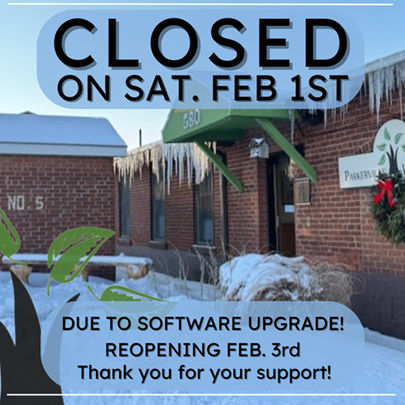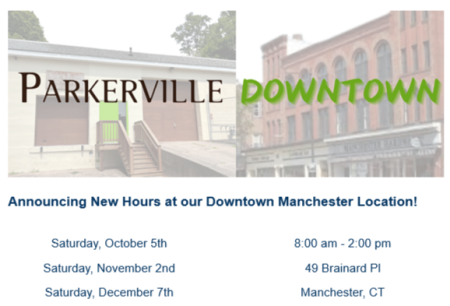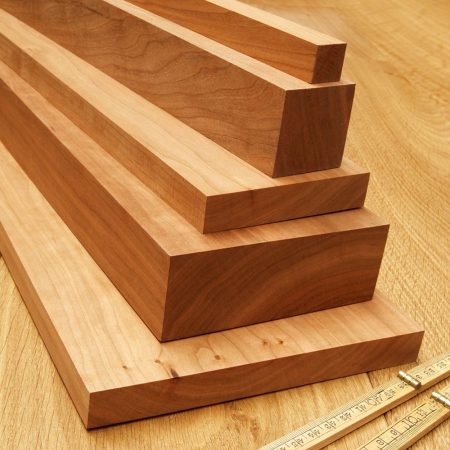March 1, 2025 | 4 min read | By: David Harris

Greetings Customers & Friends,
I would like to offer you a special invitation. First, you have to get to the end of my message here.
Woodworking, as with all other trades and industries, has multiple genres. Of course, woodworking starts with growing and harvesting the trees, slicing, sawing and drying the logs, and processing that material into lumber, veneer, and plywood. That material is then used to build homes, buildings, furniture, fixtures and cabinets. At Parkerville, we manufacture precision wood parts for Otis Elevator, build high-end corporate boardrooms and conference tables, build custom kitchens and furniture, and construct full-scale prototype curtainwalls for high-rise buildings. A curtainwall is the exterior envelope of a building, consisting of mostly glass and aluminum. We construct the aluminum components with wood to match those components exactly, then paint them the exact same color as the intended real thing. These sometimes-giant frames are then glazed with the actual 1 1/4” thick glass and installed on a structural steel frame that simulates the steel structure of the high-rise building, so that the design team and building owners can see exactly what the project will look like. Some of these scale mock-ups can cost six figures to build. Wood is a diverse, replenishable, natural resource used in everything from toothpicks to train cars.
So, with so many options, how did Parkerville arrive where it is today? It’s interesting how events in your life put you in situations that shape your future. One of those events in my life was a skiing accident I had late in winter of 1976 which kept me out of work for an extended time. One morning while out of work, I saw an ad for the Peace Corps in the employment section of the Hartford Courant, stating that they had a recruiting representative in Hartford. Given that at that time I was in a positioned in a job that was not as stimulating and rewarding as I needed, I decided to investigate. Bandaged up, I went to Hartford for an interview. Four months later I was in Ghana, in West Africa, working at the University of Science and Technology for a government institution called Forest Products Research Institute. Looking back, that changed my life in so many ways. Aside from being exposed to life in the developing world for the 27 months, I returned home with no commitments or responsibilities. At the time, the Peace Corps gave volunteers $125.00 a month as a “readjustment allowance” to help when they return to the U.S. This money was held by the Peace Corps until the volunteer got home. The typical commitment is 24 months so the allowance upon arriving home was $3000.00.
When I arrived back in the U.S. in the spring of 1979, I worked with the father of a friend of mine, who was a skilled carpenter. Over the next couple of months I worked with him on a couple of projects until the weather got warmer. In June, I rode my motorcycle to Chicago to meet a friend that I had met while in Ghana. From Chicago, we headed west on our bikes and spent the next couple of months touring around the country. Arriving back on the East Coast, I purchased a F-100 pickup, bought a skill saw, and started New England Country Woodworking, my first business venture.
In the beginning, I rented a double bay garage on Tolland Turnpike in Manchester and did just about anything to survive. Woodworking, carpentry, strip furniture, and provided maintenance for a local residential facility for teenage girls. In the early eighties I hired my first employee. Over the years the company grew and to better identify with our ability to produce commercial woodworking, the name was changed to Harris Woodworking. In 1990 the Company relocated to a 24,000 s.f. industrial building on Colonial Rd. in Manchester. At this location we expanded our lumber business and increased the commercial estimating and production. During this time the business went through a rapid growth period, taking on larger projects including millions of dollars in high-end millwork at Foxwoods Casino. Producing that type of premium millwork there at Foxwoods became my passion. Harris Woodworking developed a reputation for producing millwork for the most demanding, premium areas such as Presidential Suites, high-roller lounges, and upscale restaurants.
In 2003 the Company was sold to a group of three businessmen that had been in business together previously. None of them had experience in woodworking or construction. I had a contract with them to remain as the company President and manage the day-to-day operations.
Unfortunately, things did not go well. In 2005 the partnership informed me that they would no longer sell lumber and closed our retail showroom operation to the public. Over the next few months, I negotiated the purchase of the lumber portion of the business back from them, taking on a partner myself to help launch Parkerville, while I continued to fulfill my obligation at Harris Woodworking.
Parkerville Wood Products began operations at our current location in June of 2006, primarily selling premium lumber. About a year later, with Harris Woodworking declining due to poor management / ownership, I was asked to leave the Company. In hindsight, it was a blessing. Harris Woodworking closed in 2008.
Today, Parkerville Wood Products is a vibrant operation, employing about 28 team members. After beginning as a specialty lumber supplier, Parkerville now produces premium custom woodworking for a diverse, select client base, both commercial and residential. We thrive on difficult, complex projects where higher skill levels of design, engineering, and construction are required. We don’t typically bid or quote commercial work that is “out for bid” with several contractors, because they are all working hard to find the lowest numbers. We are not competitive with smaller, less qualified shops.
So, the invitation I mentioned at the start of this message is to invite you to see one such complex project which is currently being built, and get a personal tour by me, and explanation as to how we construct such projects. This tour we be on Saturday, March 8th at 10 am and will take about 1 hour. The project is for the Yale Center of British Art in New Haven. The museum is currently closed for a major renovation and is scheduled to reopen in late March. We are in the process of building a 10’ diameter / circular information desk for the center of the entry lobby. The desk is made of Rift Sawn White Oak solids and veneers. We are also constructing various other retail display fixtures / cabinets with the same material for the lobby space. I’ll be happy to answer any questions you may have about the project, and about anything related to Parkerville Wood Products. Sign-up is not necessary, just arrive a few minutes before 10.
I look forward to seeing you at the shop on the 8th, or anytime you can visit.
Sincerely,
David Harris, President
Parkerville Wood Products, Inc.
Do you need help with a woodworking or wood-related project and don’t know where to turn? We’re here to help. Whether you’re looking for consultation and advice, want help with design options or you’re simply looking for the right selection of wood for your project, we’re more than happy to assist you. Need help when it comes to milling or other services? We can assist you with that as well.



In celebration of President’s Day, our selection of 4/4 Cherry is on sale! Regular 4/4 Cherry is discounted to $3.99 bf with 8+” wide at $4.49.
Sale runs until February 24th!
** We’re open until 7 PM on Thursdays **
